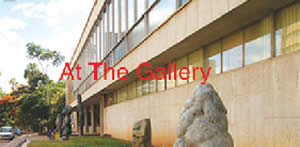African Union to push for Africa’s voice in UN

African Union chairman President Mugabe has been strident in his consistent call for the reform of the UN arguing that Africa, and also Asia, needed to be heard and that their voices be heard. He has never been a fan of the status quo dominated by former colonialists and western hegemons, a situation that extends even to global financial architecture.
Correspondents
THE African Union is to revive its push to reform the most powerful arm of the United Nations, when leaders converge in Addis Ababa, Ethiopia, this week.
Despite resistance from five permanent members of the UN Security Council, Heads of State and governments of an AU committee have recommended that member-states discuss the issue again.
The 26th Ordinary Session of the AU General Assembly for heads of state and government will be held on January 30 and 31.
Its theme is 2016: African Year of Human Rights with a particular focus on the Rights of Women.
Last week, the Committee of 10, a grouping of countries was formed to lobby for UN reforms and resolved to put the issue as the first item on the agenda.
Other members are Algeria, Libya, Senegal, Sierra Leone, Namibia, Zambia, Uganda, Equatorial Guinea and Congo.
Heads will arrive in Addis at the tail-end of the summit, endorsing or rejecting decisions reached by their foreign ministers.
Africa’s lack of influence
The Security Council is charged with maintaining global peace.
It also admits members to the UN and can approve changes to the agency’s charter.
It has 15 members, but only five are permanent and hold veto powers.
They are Russia, China, France, the UK and the USA.
Despite being the recipient of most declarations on peace and security, Africa can have only non-permanent members who do not influence major decisions.
On Tuesday, Foreign Cabinet Secretary Amina Mohamed said the push for reforms would go on.
“The Security Council does not reflect 21st Century political and economic realities. This under-representation is discriminatory, unfair and unjust. The C-10 agreed to sustain push for reforms as per the Ezulwini Consensus and Sirte Declaration,” she said.
Kenya, alongside Equatorial Guinea, were the main lobbyists for the “Africa Common Position” in 2005.
Despite meeting with permanent members of the Security Council last year, there was no substantial commitment to change anything.
AU wants at least two African countries to have permanent slots in the Security Council.
The C-10 proposed that the AU assembly resolves also to push for removal of veto powers if no African nation is included in the permanent category.
“The AU heads of state will decide on the timeframe and reaction to be addressed on UNSC. The C-10 will present its report to the heads of state summit,” Ms Mohamed explained.
Africa accuses the permanent members of being undemocratic and using the security council to safeguard their interests.
In 2012 and 2013, Kenya was bitter when its attempts to have cases facing President Uhuru Kenyatta and his Deputy William Ruto at the ICC were deferred, after the US and the UK abstained from the vote.
The first hurdle is the five permanent members but to exact changes to the council requires more than political lobbying.
Other countries like Germany, India, Brazil and Japan also feel they should be in the security council.
In fact, the UN itself formed a task force at the turn of the century to collect views on reforms.
The team proposed an increase in membership of the security council from 15 to 25.
The suggestion was blocked by the current members who feared their power to veto would be diluted.
President Mugabe’s call
African Union chairman, President Mugabe, has been strident in his consistent call for the reform of the UN arguing that Africa, and also Asia, needed to be heard and that their voices be heard. He has never been a fan of the status quo dominated by former colonialists and western hegemons, a situation that extends even to global financial architecture.
He suggested that Africa and Asia,which constitute 75 percent of the global population or 5.4 billion of the world’s 7.1 billion people, harness their strength and claim their stake in international affairs.
Of the 192 UN member states, Africa and Asia constitute 107, fifty-four for Africa and 53 for Asia.
‘‘African and Asian countries are a formidable force in numerical terms at a multilateral level yet that numerical strength counts for little when it comes to the running and control of the multilateral system. In the United Nations, the voice of the five permanent members of the Security Council carries more weight than that of the rest of us, the majority,’’ President Mugabe said.
The Security Council is not representative of the geopolitical realities of the modern world.
Both Africa and Latin America, with 54 and 33 member-states, lack a permanent seat on the Council, while Europe with 52 member-states is over-represented with three permanent seats and Asia is under-represented with one seat.
Africa’s position on the reform of the UN Security Council is enshrined in the Ezulwini Consensus, named after a valley in central Swaziland where an agreement was reached in 2005 before its adoption at an Extraordinary Session of the Executive Council of the African Union in Addis Ababa, Ethiopia in 2005.
Africa wants at least two permanent seats, with veto power, and five non-permanent seats on the Security Council with the African Union choosing the countries to occupy the seats.
Asia, which already has representation through China, does not have a unified position with several leading countries angling for membership.
“Our calls for a reform of the Security Council review have yielded nothing so far, we must remobilise for this success. One of the essential ingredients in doing so will be strengthening of our unity in continuing to fight for a United Nations that recognises all its members as equal not only in terms of the Charter but more crucially, in practice,’’ President Mugabe said.
The Anglo-Saxon alliance has been abusing the UN system for selfish ends, and occasionally by-pass the UN when it suits them to violate, invade or depose sitting governments in countries that do not toe the western line. — Daily Nation. Additional writing by Political Editor.









Comments